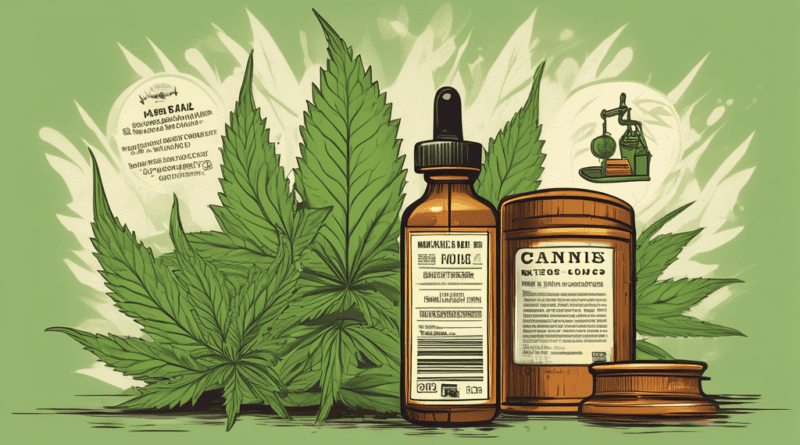Legal Risks in Cannabis Product Labeling and Packaging
Understanding Legal Risks in Cannabis Product Labeling and Packaging
The cannabis industry has experienced explosive growth in recent years, driven by legalization in various jurisdictions for both medicinal and recreational use. However, this rapid expansion comes with significant regulatory scrutiny, particularly regarding the labeling and packaging of cannabis products. Understanding the legal risks associated with these aspects is essential for stakeholders within the industry, including manufacturers, distributors, and retailers.
Regulatory Requirements
One of the primary legal risks in cannabis product labeling and packaging arises from the complex and evolving regulatory landscape. Different regions have distinct requirements that govern how cannabis products should be labeled and packaged. These regulations can include:
- Information Disclosure: Mandating specific information such as THC/CBD content, dosage guidelines, ingredients, and potential allergens.
- Health Warnings: Requiring health warnings about the potential risks of cannabis use, such as pregnancy risks, impairment, and addiction.
- Child-Resistant Packaging: Ensuring that packaging is child-resistant to prevent accidental ingestion.
- Marketing Restrictions: Prohibiting certain marketing terms or imagery that might appeal to minors.
Failure to comply with these regulatory requirements can lead to severe penalties, including fines, product recalls, and even license revocation.
Misleading Claims and Misrepresentations
Another significant risk involves misleading claims and misrepresentations on cannabis product labels. Companies must be very cautious about the claims they make regarding the benefits, potency, or efficacy of their products. Regulatory bodies such as the Federal Trade Commission (FTC) and the Food and Drug Administration (FDA) in the United States closely monitor these claims to ensure they are substantiated by scientific evidence.
If a company is found to be making unsubstantiated claims, they could face legal action, including lawsuits and substantial financial penalties. This also damages brand reputation, impacting consumer trust and market share.
Intellectual Property Infringements
Intellectual property (IP) issues are another area of legal risk. The cannabis industry is rife with branding and marketing challenges, particularly given existing federal restrictions on trademark protections for cannabis-related products in certain jurisdictions. Companies need to ensure that their brand names, logos, and packaging designs do not infringe on existing trademarks.
Engaging in thorough trademark searches and securing all possible IP protections is essential. Legal battles over IP infringement can be costly and time-consuming, diverting resources away from core business activities.
Product Liability Concerns
Product liability is a significant legal risk associated with improper labeling and packaging of cannabis products. Inaccurate labeling, such as incorrect dosage information or missing warnings, can lead to consumer harm. This can result in lawsuits from consumers who may suffer adverse effects from using the product.
To mitigate this risk, companies should implement rigorous quality control measures and ensure that all labeling and packaging are accurate and comprehensive. Additionally, securing comprehensive product liability insurance can help protect against potential claims.
Environmental and Ethical Considerations
Legal risks are not limited to regulatory compliance and consumer protection. Environmental regulations also come into play, particularly regarding sustainable packaging practices. Many jurisdictions have stringent laws governing waste management and the environmental impact of product packaging.
Additionally, ethical considerations, such as sourcing and the use of environmentally friendly materials, are increasingly important to consumers. Companies failing to meet these expectations may face backlash and potential legal challenges.
Conclusion
Navigating the legal risks associated with cannabis product labeling and packaging requires a comprehensive understanding of the regulatory landscape, a commitment to ethical practices, and robust quality control measures. As the market continues to evolve, staying informed and compliant is crucial for long-term success in the cannabis industry.
Industry participants should seek legal counsel experienced in cannabis regulation to ensure that all aspects of their products meet current legal standards and to avoid costly mistakes that could impact their business operations and reputation.

